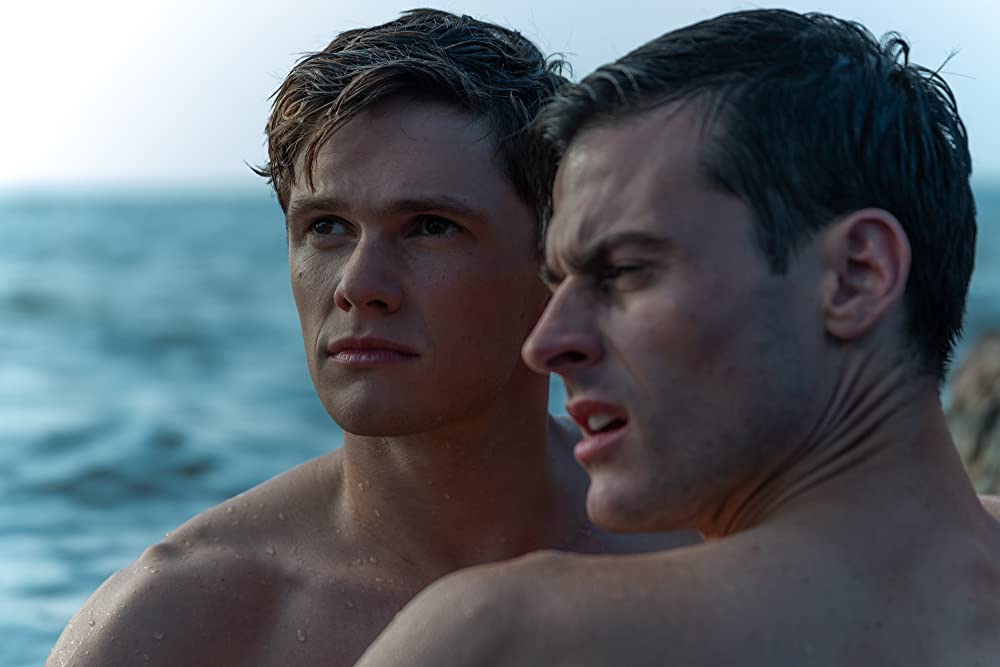By Claire Meakins, Second Year, English Literature
The doomed romance of Sergey (Tom Prior) and Roman (Oleg Zagorodnii) is compelling but also heavily clichéd. The Russian war-time setting does lend the film some originality, as well as a poignant and timely reminder of the horrific discrimination gay couples faced (and continue to face) across both countries and time periods. Despite this reminder, the film’s overall lack of originality unfortunately makes it fairly unmemorable.
The film’s moments of joy shine brightly against its literal and tonal bleakness. In one memorable scene, the lovers take a trip to the beach and experience a brief day of happy freedom, shot in vibrant warm-tones. Such scenes are refreshing and lend the film a glimmer of hope, but it’s hard not to feel the predictable tragedy looming beneath them.

This is a tragedy which is obviously important to be brought to light, but Firebird offers very little that is new to the pattern of tragic gay romance films. Historical films about these doomed and forbidden lovers have over-saturated the mainstream queer film canon. This is problematic as it suggests that homosexuality is something that can only end in ‘punishment’, rather than celebrating the love between two individuals. It feels like Roman’s death is used as a tool for tying up ends and creating emotional impact, as though the director (Peeter Rebane) was frightened of veering away too much from this pre-established format. Tragic, heart-rending films can be very successful, but when a film provides little that is unique (as in the case of Firebird), it becomes forgettable in a sea of incredibly similar narratives. Of course, a gay couple in the Soviet Union in the height of the Cold War were probably not going to have an easy time (and the fact that the film is based on the true story only limits that further); however, it would have been nice for the film to dwell more on the moments of joy that could be found ‘living in the gaps’.

That said, Firebird does still pack an emotional punch that is well worth experiencing. The cinematography is excellent throughout with shots of the grey, snowy Moscow skyline helping to create a moody atmosphere. The acting, while slightly cheesy in the more romantic scenes, is superb in moments of pathos with both Prior and Zagorodnii showcasing their ability to convey strong emotion through a simple glance. The use of photography as a motif reinforces the importance of gazing in the film with a photograph often acting as an impetus for action. It also allows for a shared passion between the couple, culminating in a scene of ‘mutual gazing’ in a makeshift darkroom.
Margus Prangel as an intimidating KGB major offers a strong performance. His menacing calm and physical stature make him feel like an omnipotent force looking to destroy Sergey and Roman’s chances of happiness. The film’s tension in the first half is led by him and he, very capably, manages to feel threatening without straying too close to a caricature of evil. His character is a powerful reminder of the outside forces that prevent the couple’s romance in a film which is predominantly concerned with the barriers they themselves personally put up.

Firebird’s best parts are where it deviates from tropes and allows new ideas into its narrative. Its timeliness in regard to the discrimination by those under the Soviet regime lends it an element of freshness, but overall, the final result is too clichéd to be truly original.
Featured Image: IMDB, Herkki Erich Merila
What did you think of Firebird?









